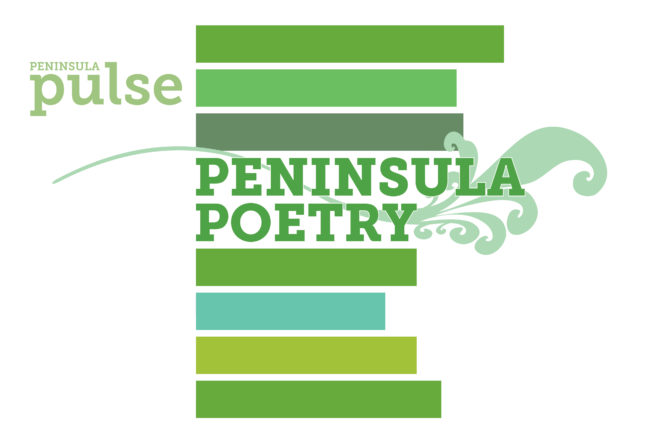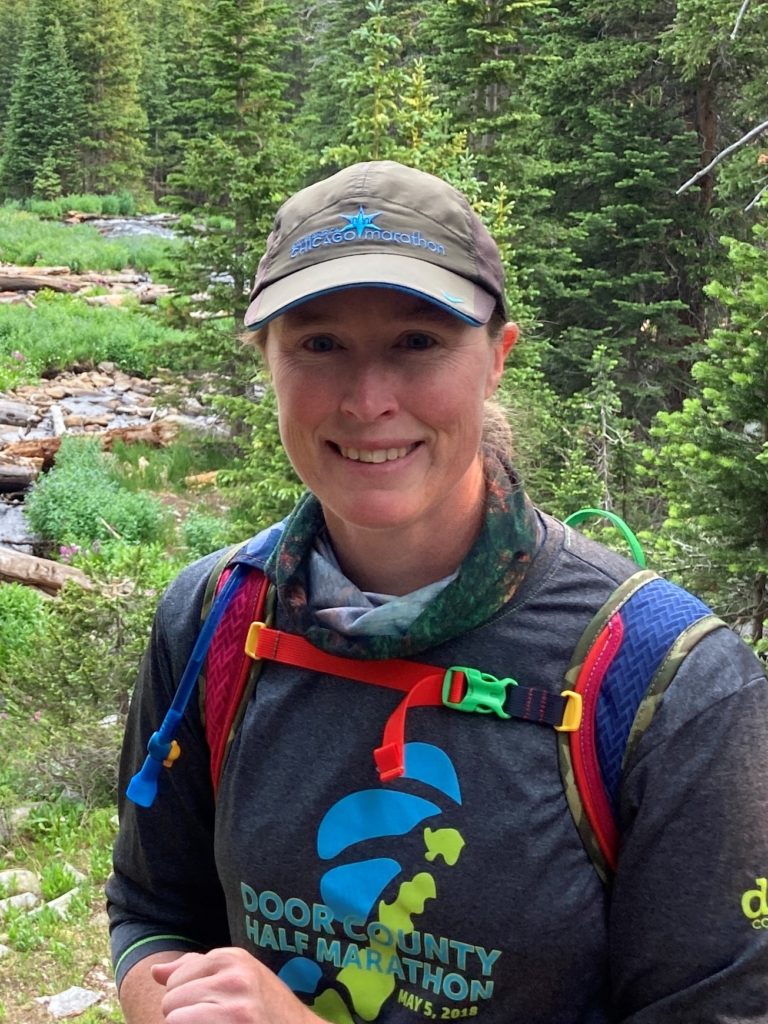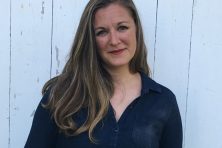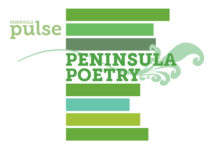Peninsula Poetry: Holly Selle
- Share
- Tweet
- Pin
- Share

Holly Selle was born in Missouri, started school in Nevada, grew up in Texas, attended college in Iowa, completed one graduate program in Arkansas and then finished another in Alaska before settling down in Door County, where she has lived for the past 12 years.

Having moved around for most of her childhood, a sense of place has played a large part in Selle’s writing, and the beauty of Door County is no exception. She enjoys the opportunities she finds here to hike, ski, kayak and run along the bay during the early-morning hours when the sky first turns pink.
Selle began writing poetry in sixth grade and has been scribbling in spiral notebooks ever since. She holds a B.A. in English and secondary education from the University of Iowa and earned an M.F.A. in creative writing from the University of Alaska-Anchorage, where she studied under poet Anne Caston. Selle has worked in education for 19 years and is currently the library media director for Sturgeon Bay Schools. She lives in Sturgeon Bay with her husband and two children.
What is your writing routine?
With two children and a full-time job, I don’t really have much of a routine anymore. I write when I find the time or when some image or phrase gets stuck in my head. I scribble words down on whatever paper I can find. I have spiral notebooks by my bed that I pick up when I can’t go to sleep at night because an idea keeps begging to be written.
What do most poorly written poems have in common?
Poetry is so deeply personal. What appeals to one person may not appeal to someone else. For me, poems that have a clunky rhythm are what throw me off. I feel poetry should be able to flow naturally when you read it aloud, and when it jars you, it should do so for a reason.
What do most well-written poems have in common?
Well-written poems leave the reader with a strong mental image or emotional connection. They often invite the reader to look at something in a new way. That being said, sometimes I enjoy a poem just because of the way the words sound together. Poetry is all about the beauty of language and new ways of seeing and saying things.
Is it important to understand the meaning of the poem or for the reader to be able to “solve” it?
Definitely not. Poems are going to have different meanings for different people. Some may be what the poet intended, and some may not. I have picked many poems apart in classes, and while it did change my understanding of a poem, it did not always change my appreciation of it. Sometimes I have no idea what a poem means, but I still love the rhythm of the language, the mood it invokes, the images it creates and the turn of a line. All of these are important even if we don’t understand the author’s full meaning.
What book are you reading now?
As a school librarian, I read a ton of young-adult novels. I just finished this year’s Michael Printz Medal winner, Firekeeper’s Daughter by Angeline Boulley, which is a thriller set in Sault Ste. Marie with an Ojibwe girl as the main character.
Now I am working on this year’s John Newbery Medal and Pura Belpré Award winner, The Last Cuentista by Donna Barba Higuera, a science-fiction novel about a girl who wants to be a storyteller but has to flee planet Earth when a comet strikes it.
Peninsula Poetry is a monthly column curated by the Door County Poets Collective, a 12-member working group that was formed to publish Soundings: Door County in Poetry in 2015 and continues to meet.
Spring Shoves Lake Michigan heaves winter up on shore: disjointed mounds of dirty white ice cover the beach, cover the road. Clouds: grey on grey, water on water. Spring groans to be shown. We climb ice shoves at Cabot Point, follow footprints fifteen feet up squared off chunks of glacial blue ice driven vertical: the wind’s sculpture art of spring break-up. We stare at our fragmented bay — this frozen force of nature, this cold beauty. The lake surges for control makes it known: We are not in charge here. We were never in charge.
Homer Spit The bald eagle sustained on coastal winds hovers like a boy learning the balance of a skateboard — arms outstretched, body jerking over the rutted cracks of sidewalk. In the combative sky one brown wing dips then the other, a torn majestic glide: the struggle to fly.
Texas Hill Country Dry land of Bermuda grass, coarse pink granite, fire ants and prickly pear, an armadillo nosing loud as a midnight train through dead oak leaves. All life draws in to itself, rough exteriors exposed. The rain lily emerges after one day of plenty. One white head nodding, one fragrant slender stalk living only one day. Or two. It is enough.
Mt. Susitna Anchorage, Alaska Sleeping Lady rests at the edge of sunlight pulling her blanket of clouds across the city sky. It is May. The forecast is unchanging for ten days out: sixty degrees, cloud cover, no rain. Sixty degrees feels cold under a grey sky when the wind picks up and the sky presses down with a winter’s thumb instead of the sun you’d dreamed about, even seen for days at a time in November, January, March when it pushed the red bulb below zero. The glass windowpane reveals green grass, green leaves, dandelions and Sleeping Lady, shedding most of her nightgown of snow. I am not fooled. The three months of summer will pass quickly. Fireweed will race to magenta tips, green return to brown then white then dirty grey. Sleeping Lady will pack on the snowy pounds before hibernating for another long, slow season.
South Fork Crazy Woman She meanders within banks lost from shore, caught under a stone pushed down by the current. The water whispers secrets as it passes by. She hears only pieces, a letter, a syllable, fall on her ear, alphabet of a foreign language. Her fingers rest easy on smooth stones, tease the moss. Fish gather in a pool to speak. She reads lipless mouths for glubs of truth. The trout, the water, the toe under the stone, words without context — a dry creek bed.


